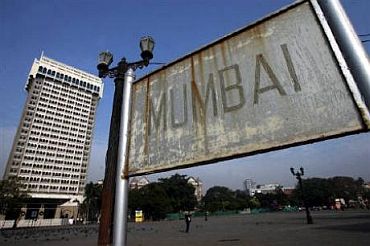
At least six suspected 'masterminds' of the Mumbai terror attacks are still at large in Pakistan and there is mounting evidence of the Inter Services Intelligence's strong links to the 2008 strikes, an investigative report said on Monday
"The evidence against at least half a dozen suspected masterminds of Mumbai who are still at large includes (David) Headley's statements implicating officers in Pakistan's ISI along with the Lashkar-e-Tayiba," the report quoted officials as saying.
"There are also physical clues," wrote investigative reporter Sebastian Rotella in the report jointly published in The Washington Post and ProPublica.org
.
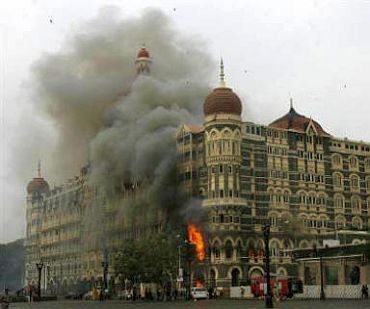
The Mumbai case could put Washington and Islamabad on a collision course, the report said, amid Pakistan's unwillingness to take firm action against those responsible for the attacks that killed 166 people, including six Americans.
US Attorney General Eric H Holder Jr has vowed to prosecute the killings of the six Americans as required by the law.
The prosecutions of the Mumbai and Denmark plots are being led by US Attorney Patrick J Fitzgerald in Chicago. But it is unlikely that Pakistan would extradite the suspects to the United States, officials said.
And Pakistani courts tend not to convict accused radical Islamists, the report said.
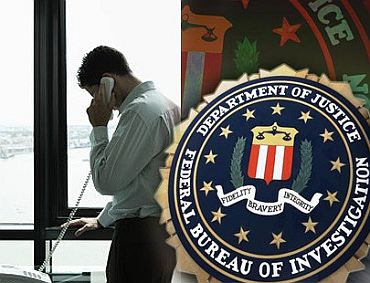
The Federal Bureau of Investigation has identified a phone number that is believed to connect Sajid Mir, a suspected Mumbai attacks mastermind, David Headley and Pakistani intelligence officials.
Headley called Pakistani military officers at the number while working for the LeT; the number was also called by an accused ISI spy who went on a secret mission with Mir in India in 2005, the report said citing investigators.
The Pakistani government denies any official link to the 2008 attacks.
However, Rotella said that the question of the Pakistani government's involvement drives a high-stakes debate.
Some Western anti-terrorism officials think that, at most, Pakistani officials provided limited state support for the Mumbai attacks.
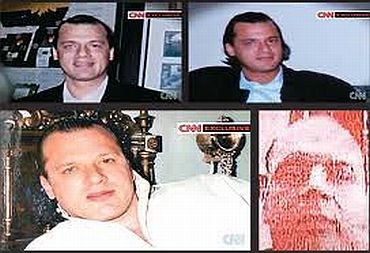
"A senior US counter-terrorism official believes a few mid-level Pakistani officials had an inkling of the plot but that its dimensions surprised them. Others speculate that the government of President Asif Ali Zardari may even have been a secondary target because of his overtures to India and his opposition to extremism," the report said.
"Perhaps it was done by people who didn't like the way the ISI and the army were moving, particularly in Kashmir," an European official was quoted as saying. "Maybe it was a rogue operation destabilising the Pakistanis as well as the Indians," it said quoting the official.
In contrast, a number of Western and Indian anti-terrorism officials cite the in-depth scouting, amphibious landing and sophisticated communications used by militants during the Mumbai attacks as signs of Pakistan's involvement.
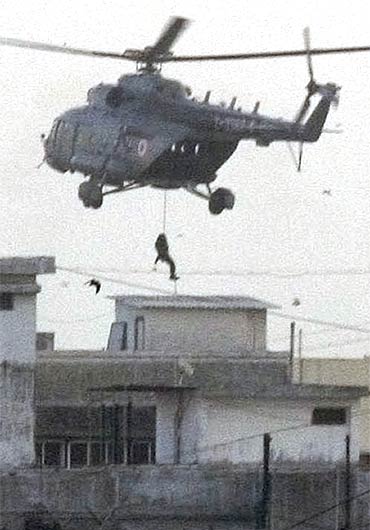
"Headley's disclosures and Lashkar's history make it hard to believe that military leaders were unaware of the plan, they say," according to the report.
Rotella said Mir and Major Iqbal are keys to the mystery because they allegedly connect LeT and the government.
Western and Indian investigators suspect that Mir is a former military or ISI officer, or he at least had close links to the security forces. They believe that Major Iqbal was an ISI officer using a code name.
A recent Interpol notice of an Indian arrest warrant gives only his rank and last name.
"It remains to be seen whether Mir, Major Iqbal and other suspected plotters will be successfully prosecuted. An Indian court convicted the lone surviving terrorist (Ajmal Kasab) in June. But US officials say the Pakistani trial of the Lashkar military chief (Zakiur Rehman Lakhvi) and six lower-level suspects captured last year seems hopelessly stalled," the report said.
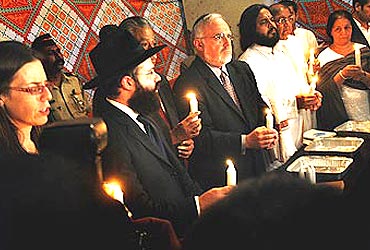
It noted that unlike Al Qaeda and other militant groups, Lashkar has not attacked the Pakistani government.
"But its professionalism, global networks and increasing focus on Western targets have made it one of the most dangerous forces in terrorism, many investigators say," said the report.
Recent warnings of Mumbai-style plots by the Al Qaeda in Europe reflect Lashkar's influence in the convergence of militant groups that a British official calls "the jihadist soup in Pakistan," the report said.
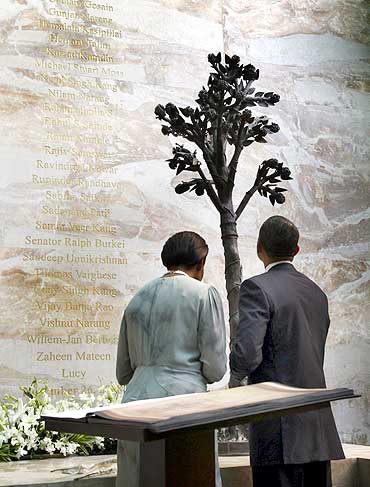
The report also claims that prior to the 2008 Mumbai attacks, the US and Western countries quietly ignored the threat potential of the LeT, despite having enough intelligence against the terrorist outfit.
This was primarily because the Pakistani leadership -- the ISI and the army in particular -- were successful in convincing the West and US, which relied heavily on Islamabad on the war on terror in Afghanistan -- that LeT was solely focused on India, including Kashmir, and had nothing to do with the Al Qaeda and the Taliban, the report by Sebastian Rotella said.
As a result, the LeT went on to develop itself as a potent threat not only to India but also to the US and European countries.

The Bush administration and western nations like Britain and France appeared convinced by the Pakistani argument and kept their eyes off the LeT all this while during which the terrorist outfit went on a hiring spree of foreigners like David Headley and planned attacks like those in Mumbai.
"It is a story of a militant group that used political clout and support from Pakistani security forces to develop global reach and formidable trade-craft," the investigative report said, citing investigators and court documents.
"It is also a story of how, despite a series of warning signs, anti-terrorism agencies were caught off-guard when the Lashkar escalated its war on the West with a 2008 attack on Mumbai that targeted Americans, Europeans and Jews as well as Indians," Rotella wrote.
The investigative report said that in 2006, US counter-terrorism agencies still viewed LeT primarily as a threat to India.
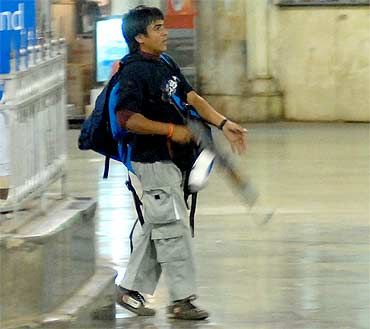
"But Headley's mentor, Sajid Mir, had widened his sights to Western targets years earlier. Mir, a mysterious Lashkar chief with close ties to Pakistani security forces, had deployed operatives who had completed missions and attempted plots in Virginia, Europe and Australia before being captured," Rotella wrote citing investigators and court documents.
A French court had issued an arrest warrant against Mir, now considered the mastermind of 26/11 attacks, some two years before the Mumbai terrorist attacks. But Pakistan did not respond, nor did the French government exert enough pressure on the then Pervez Musharraf regime to take action against Mir, who many believe is an army officer.
"In October 2006, two years before the Mumbai attacks, (Jean-Louis) Bruguiere (of France) issued an arrest warrant for Mir that was circulated worldwide by Interpol. There was no response from Pakistan," said the investigative report.
Jean-Louis Bruguiere is France's top counter-terrorism magistrate, who had spent three years investigating Mir after one of Mir's French operatives, Willie Brigitte, was arrested in a foiled bomb plot in Australia. A Paris court convicted Mir in absentia and sentenced him to 10 years in prison in 2007.
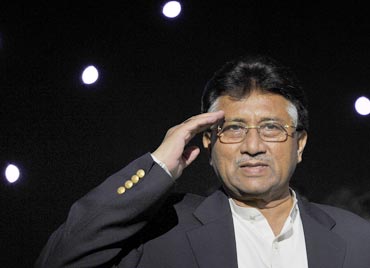
Nonetheless, Bruguiere says most Western investigators he dealt with continued to view LeT as a regional actor confined to South Asia.
"For me it was a crucial case, a turning point," Bruguiere said, "because of what it revealed about the role played by Pakistani groups in the global Jihad and about the role of the Pakistani security forces in terrorism. We had the impression that Mir was protected at the highest levels of the state."
In summer 2007, Bruguiere met at the White House with a top security adviser to the then President George W Bush. The French judge shared his fears about LeT and his suspicion that Pakistani President Pervez Musharraf was playing a 'double game'.
Rotella wrote that Bruguiere said the White House official, whom he declined to identify publicly, did not seem convinced.
"The US government is a huge machine," said Bruguiere, who is now the European Union's envoy to Washington in efforts against terrorism financing. "It's difficult to make it change course," he was quoted as saying.